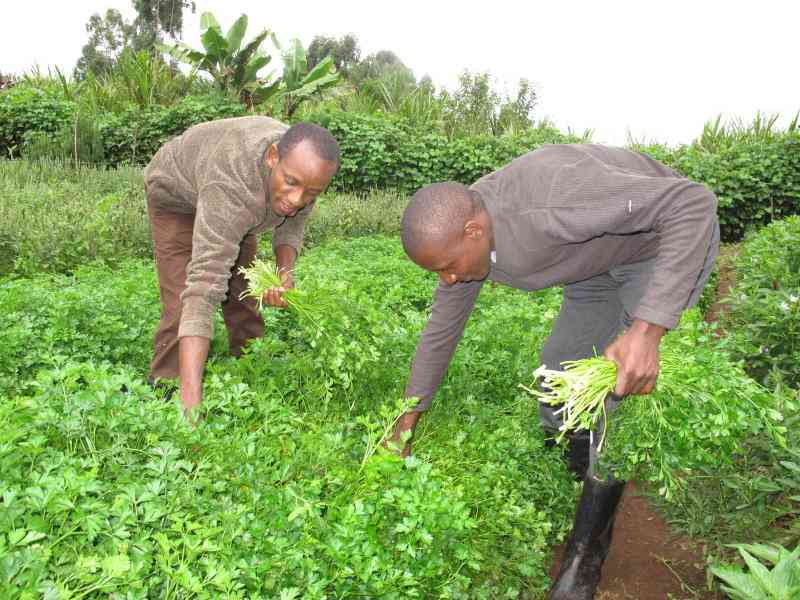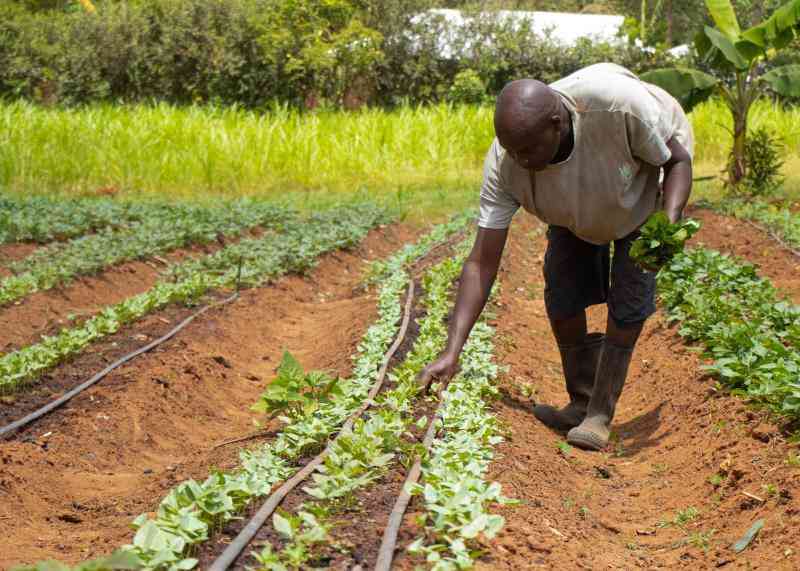How food delivery platform hopes to cut cost of food
Food is dear to everyone’s heart. Recent research has shown that Kenyans spend 55 per cent of their disposable income on food, a high percentage compared to South Africa’s 16 per cent and UK’s 8 per cent.
So why is the cost of food so high yet more than 60 per cent of the country’s population makes part of their living from agriculture?
Inefficient food production, waste due to poor handling and passive intermediaries are mainly to blame.
Peter Njonjo, a member of Young Presidents Organisation (YPO) is the CEO and co-founder of Twiga Foods Limited, is leading frantic efforts to reduce the cost of food.
Twiga works with farmers and vendors to reduce the cost of food for urban dwellers by providing an efficient technology-enabled marketplace to address gaps in the distribution of both fresh and processed food.
“Twiga sources fruit and vegetables from more than 17,000 farmers and delivers directly to 3,000 vendors in Nairobi and its environs,” says Njonjo.
While farmers enjoy guaranteed markets, transparent pricing and agronomy support, vendors get fair prices and free delivery with assured food safety.
Njonjo explains: “The Twiga Foods platform uses mobile phone-based technology to aggregate market participants and matches supply and demand. Through Twiga’s m-commerce platform, vendors order fresh and processed food as and when needed. By increasing efficiency in the supply chain, we are able to limit waste and reduce food prices for end consumers.”
“When we established Twiga in 2014, our initial idea was to export fruits but we soon realised there was more potential in the local market where the cost of food was high on account of low productivity in farming, high-post harvest losses and layers of passive intermediaries. So, we developed a more efficient supply chain, eliminating intermediaries and offering better quality produce at lower prices.”
Around the same time, he was introduced to the YPO, a global leadership organisation that provides a platform for chief executives to engage, learn and grow.
“This gave me access to a network of peers that helped inspire me from business, family, personal and community standpoint. This was particularly useful for me as I learnt from the experiences of others, especially when it came to seeking funding for Twiga in the early days,” added Njonjo.
The company is also leading the charge on food safety in the domestic scene in Kenya, in partnership with the International Finance Corporation.
“Kenyans deserve to enjoy the same food safety standards as other consumers in more developed markets irrespective of their income levels,” said Njonjo.
The company is changing the lives of many small vendors, who previously had to wake up at 4am to go to the local market to source produce to sell.
With Twiga, they get their requirements delivered to their doorstep, benefiting from the company’s expansive sourcing network of farmers and food manufacturers.
For a company that started by focusing on bananas, the offering has now expanded to other foodstuffs like potatoes, onions, tomatoes, melons, flour, rice, cooking oil and sugar.
What lies ahead for Twiga? The company aims to continue expanding the retailers it serves on a daily basis, lowering the prices of food through the extensive work with farmers, food manufacturers, providing value-added services like working capital financing and enhancing the convenience of market access to all players in the ecosystem.
This will eventually lower the amount of disposable income that consumers in Kenya spend on food and hopefully, make the country more food secure.
Want to get latest farming tips and videos?
Join Us
Share this article on social
 The Standard Group Plc is a multi-media organization
with investments in media platforms spanning newspaper print operations,
television, radio broadcasting, digital and online services. The Standard Group
is recognized as a leading multi-media house in Kenya with a key influence in
matters of national and international interest.
The Standard Group Plc is a multi-media organization
with investments in media platforms spanning newspaper print operations,
television, radio broadcasting, digital and online services. The Standard Group
is recognized as a leading multi-media house in Kenya with a key influence in
matters of national and international interest.
 The Standard Group Plc is a multi-media organization
with investments in media platforms spanning newspaper print operations,
television, radio broadcasting, digital and online services. The Standard Group
is recognized as a leading multi-media house in Kenya with a key influence in
matters of national and international interest.
The Standard Group Plc is a multi-media organization
with investments in media platforms spanning newspaper print operations,
television, radio broadcasting, digital and online services. The Standard Group
is recognized as a leading multi-media house in Kenya with a key influence in
matters of national and international interest.






